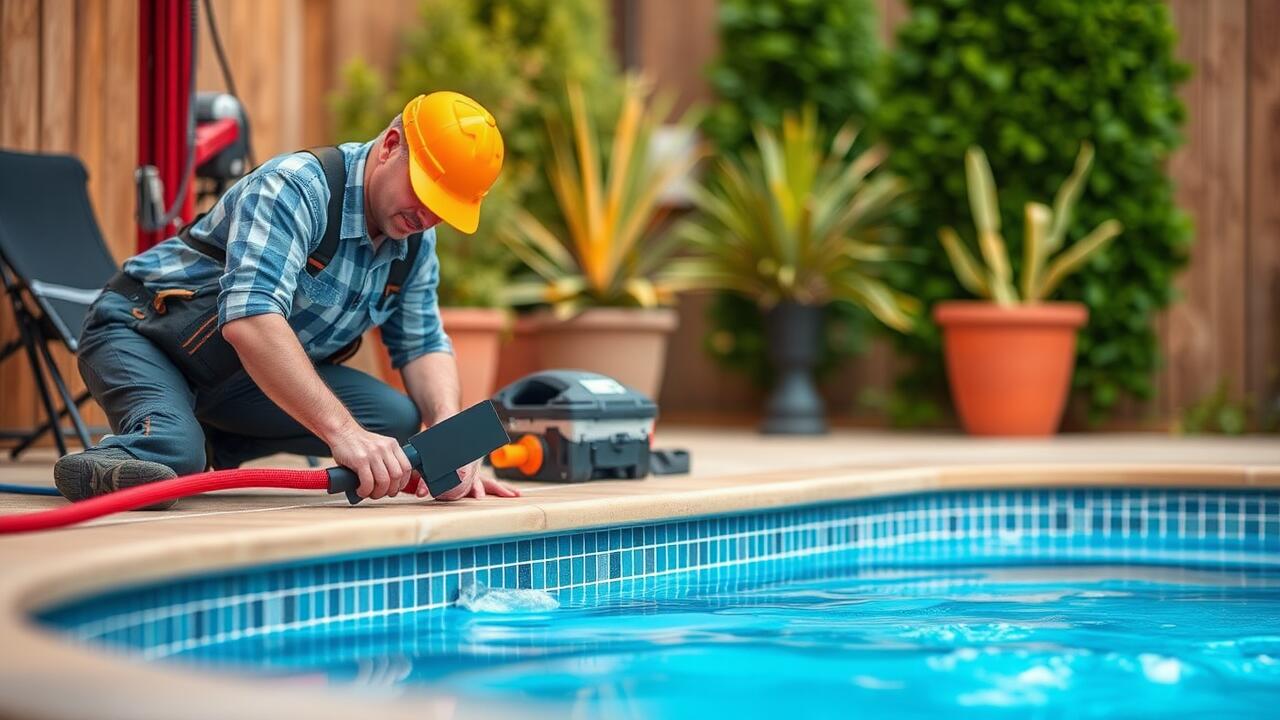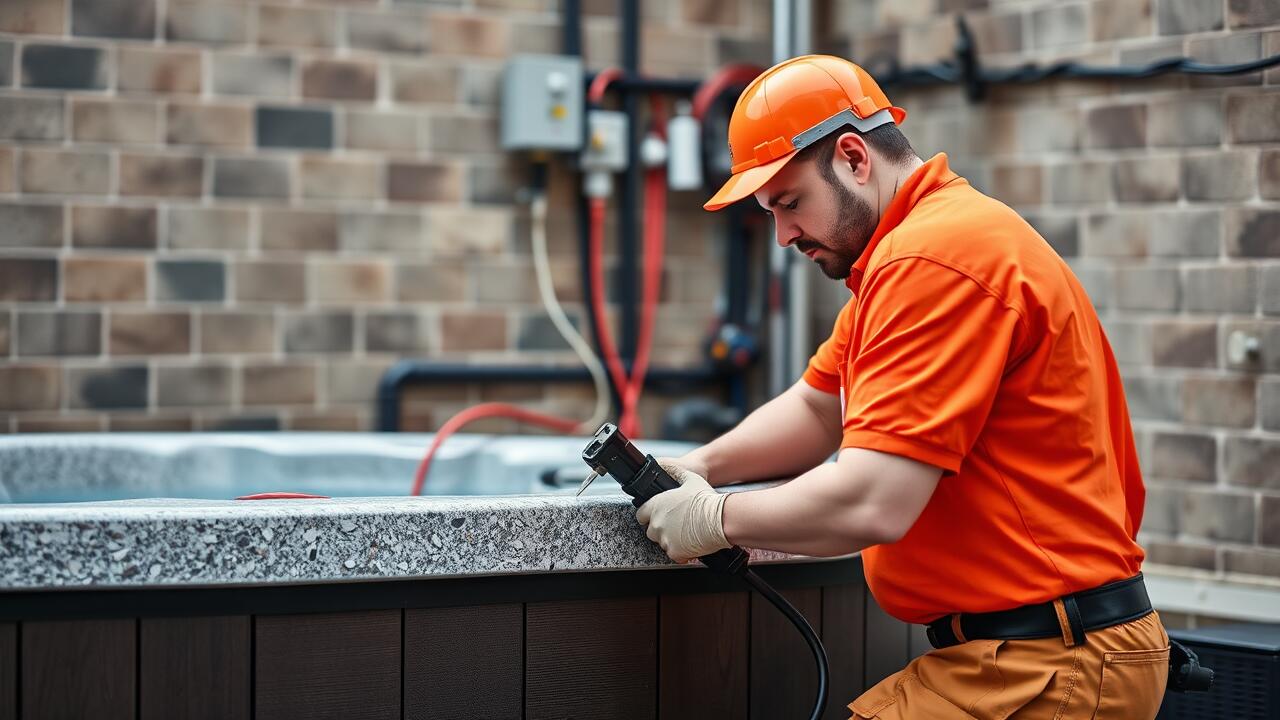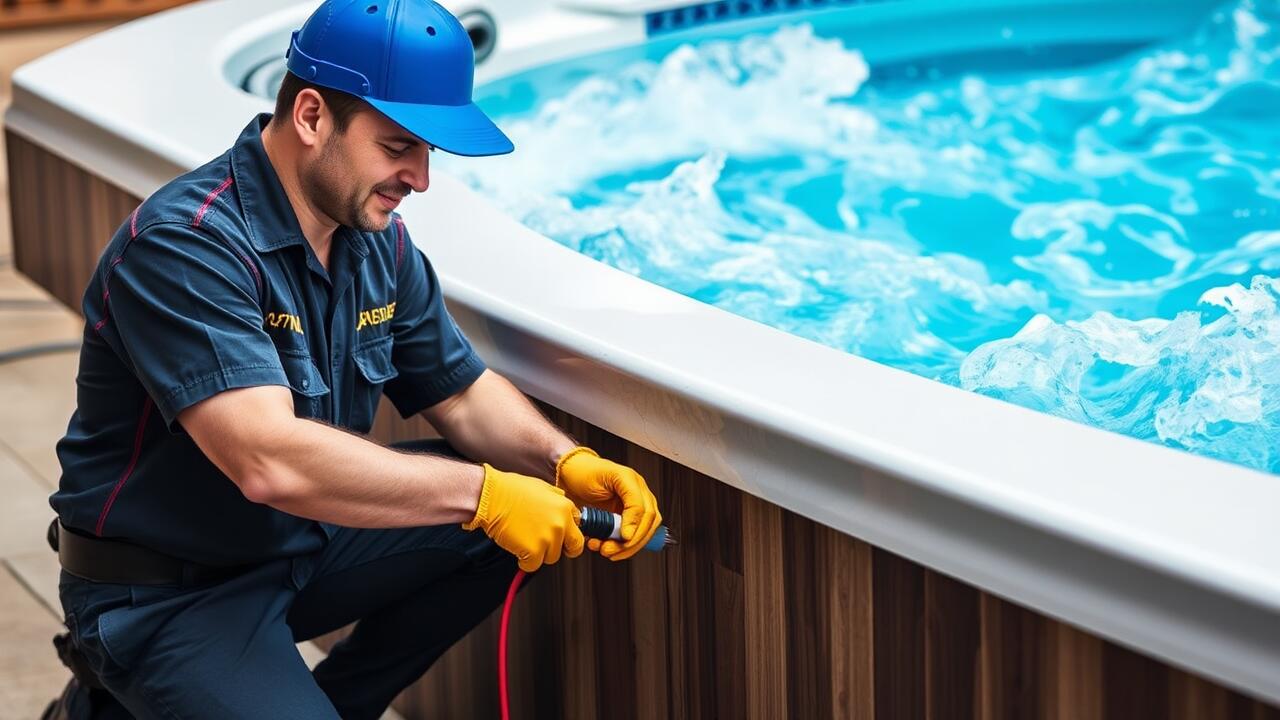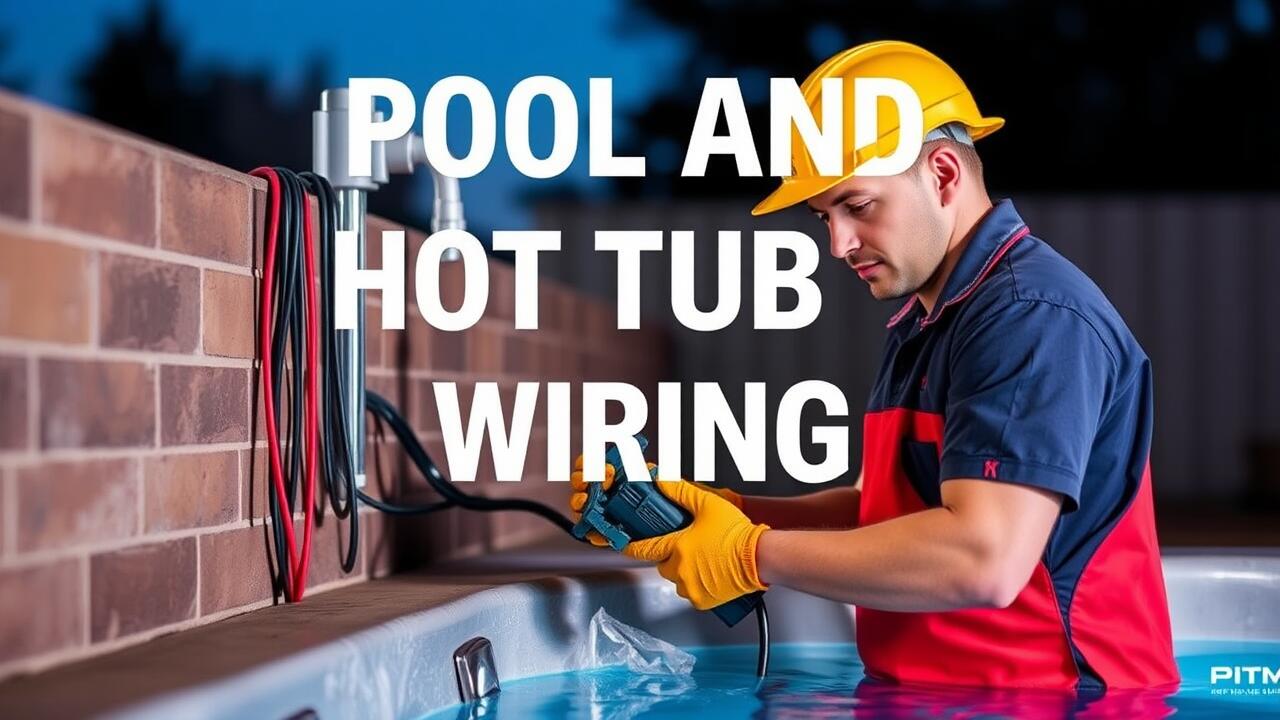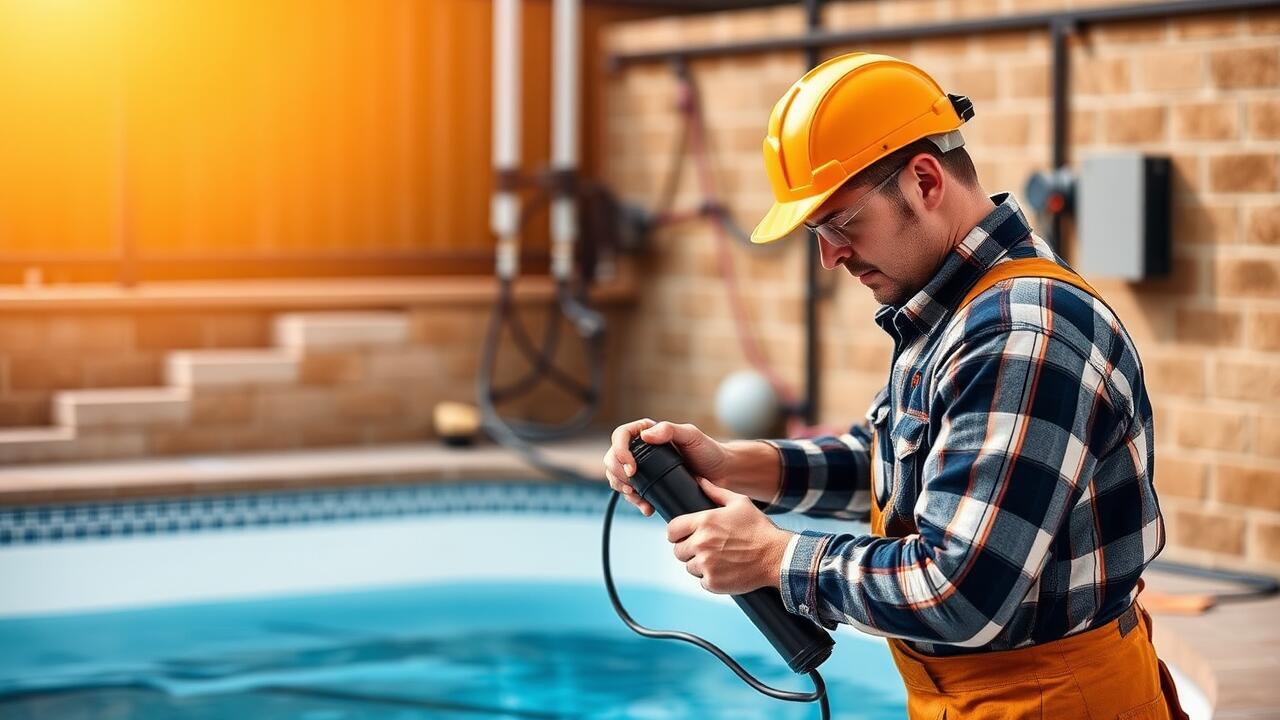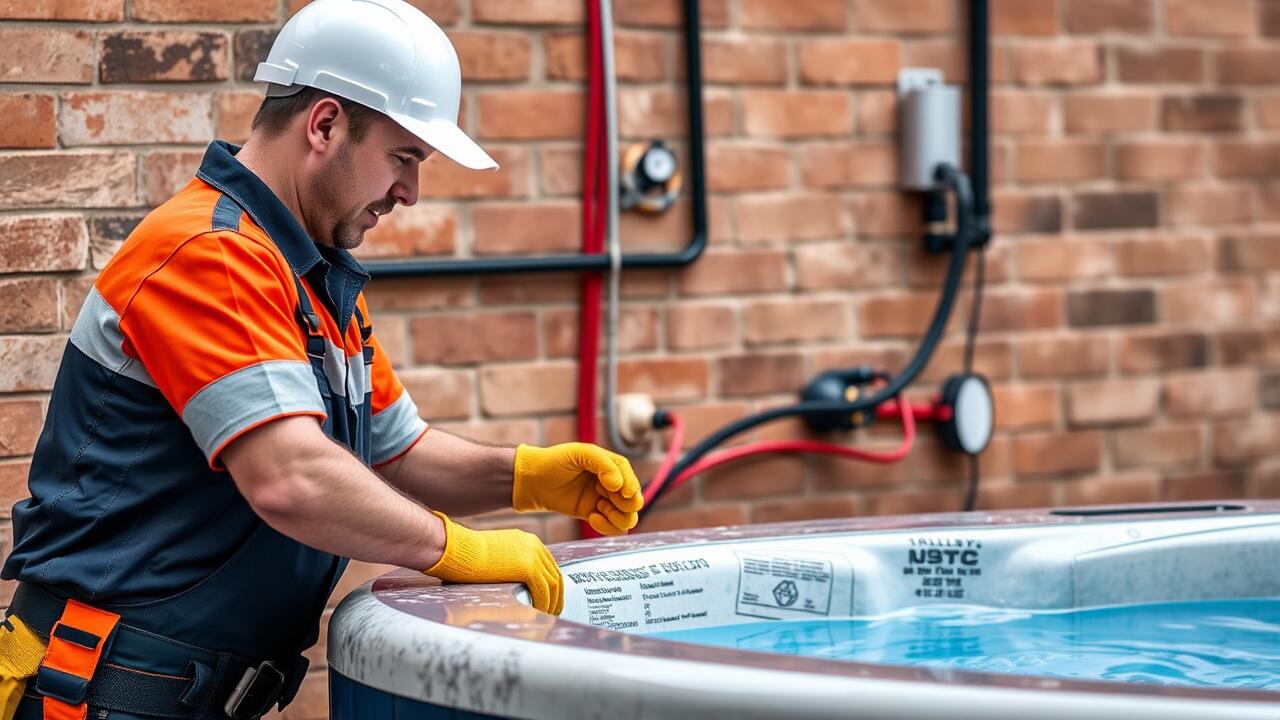
Effective Grounding Techniques
Effective grounding techniques ensure the safety and functionality of pools and spas. Using ground rods, which should be driven into the earth near the pool, provides a direct path for unwanted electrical energy to dissipate safely. These rods must be properly connected to the electrical system with conductive materials to establish an effective ground that meets NEC (National Electrical Code) standards. Grounding is essential in preventing electrical shock incidents, especially in areas with water where electrical equipment is present.
In Sharpstown, Houston, the local regulations may stipulate specific requirements for grounding methods in pool and hot tub installations. Employing ground plates or grid systems can enhance grounding effectiveness, especially in sandy soil, where traditional ground rods might be less effective. It is vital to ensure that all metal components around the pool, such as ladders and handrails, are properly grounded to mitigate electrical hazards. Proper attention to these grounding techniques during the planning and installation phases enhances both safety and compliance with local codes.
Methods for Proper Grounding Connections
Proper grounding connections are essential for the safety and functionality of pools and spas. The use of ground rods is one effective method, as they provide a direct path to dissipate electrical currents safely into the earth. Ensuring that these rods are driven deep enough and are free of corrosion is vital. Additionally, the grounding conductor must be securely attached to the ground rod and connected to the pool equipment to create a reliable electrical bond.
Another method involves using bonding jumpers to connect metallic parts of the pool or spa system to the grounding system. This technique helps in eliminating voltage differences between various conductive components, reducing the risk of electric shock. When implementing these methods, it's important to adhere to local electrical codes, such as those for Pool and Hot Tub Wiring in Sharpstown, Houston. Following these guidelines can help ensure a safe environment for users while minimizing potential electrical hazards.
Bonding Wire Specifications
When selecting bonding wire for pools and spas, it is essential to adhere to specific standards and specifications. The wire must have a minimum size to ensure adequate conductivity and safety. Generally, copper wire is preferred for its high conductivity, with a common minimum size being 8 AWG for residential installations. It is crucial to use the appropriate type of bonding wire, as improper choices can lead to increased resistance, resulting in potential electrical hazards.
In addition to choosing the right size and material, understanding the installation environment is vital for optimal performance of bonding wire. Factors such as exposure to moisture, chemicals, and temperature fluctuations can affect the lifespan and effectiveness of the wire. Ensuring compliance with the National Electrical Code (NEC) is essential. For those in Westchase, Houston, working with professionals familiar with local codes will help ensure that all bonding wire specifications meet safety requirements, protecting both users and equipment.
Choosing the Right Type and Size
Selecting the appropriate type and size of bonding wire is crucial for ensuring safety and compliance with electrical codes. The National Electrical Code (NEC) specifies that bonding conductors must be made from copper or aluminum, with copper being the preferred material due to its superior conductivity and corrosion resistance. Generally, for pool and hot tub installations, the bonding wire should be a minimum of #8 AWG copper or #6 AWG aluminum. This size ensures that the wire can handle potential fault currents and provide adequate grounding.
When assessing the right size for bonding wire, consider factors such as the total distance of the wire run and environmental conditions. Longer runs may require a thicker wire to minimize voltage drop. For installations in areas prone to corrosion, opting for a tinned copper wire can enhance durability. Always refer to local regulations and consult with professionals when determining the specifics for Pool and Hot Tub Wiring in Westchase, Houston. Proper selection ensures that enjoying your pool or hot tub remains a safe experience while meeting all necessary electrical standards.
Common Mistakes in Grounding and Bonding
One of the most frequent mistakes in grounding and bonding involves inadequate connections. Weak or corroded connections can lead to dangerous electrical faults and pose serious risks to users. Ensuring that all connections are secure and made with appropriate materials is vital for safety. Inadequate bonding of components, such as pool ladders and handrails, often goes overlooked, increasing the potential for electrical shock accidents. Proper inspection during installation can help identify these issues before they become hazardous.
Another common error is neglecting local codes and regulations. Standards for Pool and Hot Tub Wiring in West University Place, Houston, can vary significantly, and failing to adhere to them may result in unsafe conditions. Some may opt for shortcuts, using incorrect wire sizes or omitting necessary components altogether to save time or reduce costs. This oversight compromises the integrity of the system and can lead to severe consequences. Always consult a professional to ensure compliance with safety guidelines and local requirements.
Errors to Avoid During Installation
One of the most common mistakes during the installation of grounding and bonding for pools and spas is using inappropriate or inadequate materials. Homeowners may be inclined to cut costs by selecting cheaper alternatives that do not meet the necessary specifications. Furthermore, using wire that is too small for the application can lead to overheating and potential failure of the grounding system. This oversight can create dangerous situations, especially in wet environments typical of pool areas.
Another frequent error involves neglecting to follow local code requirements and guidelines specific to regions like Pool and Hot Tub Wiring in Kingwood, Houston. Each municipality may have unique regulations that dictate the proper installation methods, materials, and configurations. Failing to adhere to these stipulations can result in unsafe conditions. This oversight not only increases risk but can also lead to significant financial repercussions due to fines or required rework.
FAQS
What is the purpose of grounding and bonding in pools and spas?
Grounding and bonding are essential safety measures that prevent electrical shock and ensure that any stray electrical currents are safely redirected to the ground.
What are effective grounding techniques for pools and spas?
Effective grounding techniques include using grounding rods, bonding all metal components and equipment, and ensuring proper connections to the electrical system.
How do I choose the right bonding wire for my pool or spa?
When choosing bonding wire, consider the material (usually copper or aluminum), the appropriate gauge size based on the installation, and ensure it meets local electrical codes.
What common mistakes should I avoid during the grounding and bonding installation?
Common mistakes include neglecting to bond all metal parts, using incorrect wire sizes, failing to check for proper connections, and overlooking local codes and regulations.
Are there specific regulations I need to follow for grounding and bonding in pools and spas?
Yes, grounding and bonding must comply with the National Electrical Code (NEC) as well as any local building codes, which can vary by region. Always consult with a licensed electrician for specific requirements.
